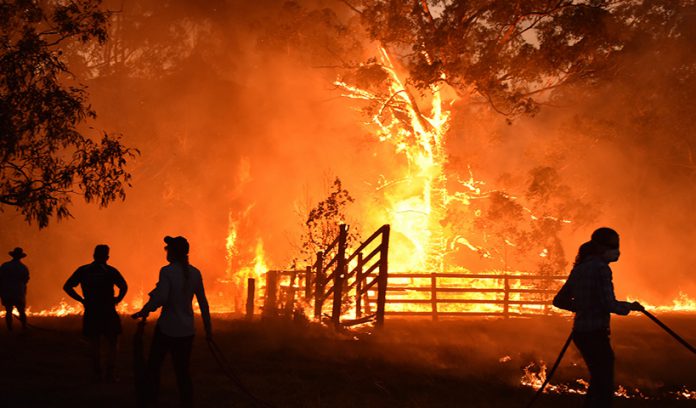More than 50 people have been treated for asthma and breathing-related issues, which resulted from thick bushfire smoke on Tuesday.
Jordan Emery, Superintended of NSW Ambulance, has warned people to exercise caution while the conditions may look better to the naked eye.
He said, “Even though it looks and feels like the smoke is clearing, there will still be fine particles in the air that can last for several days, so make sure you continue to monitor your symptoms.”
He advised people to look for changes in breathing and call paramedics in case of respiratory issues such as coughing, wheezing, breathlessness or chest congestion.
“These conditions are not a joke and can be potentially life threatening, so we really need people to take care of themselves and each other,” he added. “Stay inside where possible and make sure you always have your medications with you.”
On Tuesday morning, air quality dropped sharply to hazardous levels in north-west Sydney, which can cause serious health issues, especially to people with existing medical conditions.
Dr. Richard Broome of the NSW Department of Health said smoke particles can cause irritation in the eyes, nose and throat, and may aggravate cardiovascular and respiratory conditions, leading to symptoms such as breathlessness, coughing, wheezing, and chest pain/discomfort.
He advised patients with existing lung or heart conditions to take their medications as advised by their physicians.
Ann Farrell, Bureau of Meteorology NSW Manager, “Along with the heat, gusty winds and wind changes from weak fronts on Tuesday and Thursday will make conditions difficult for firefighters, with fire dangers expected to reach very high or severe in some Districts, especially inland.”
Dr. Broome explained that the poor air quality can exacerbate the risks associated with warmer temperatures, with temperatures exceeding 40 in some rural areas and 30 in western Sydney.
“We know that heatwaves cause severe illness, hospital admission and even deaths, and that people are more sensitive to heatwaves early in the season. The combination of heat and poor air quality adds to the risk,” he said. “Hot weather puts a lot of strain on the body, causes dehydration and can make underlying health conditions worse. It also causes heat stress and heatstroke. People over 75, people with chronic medical conditions and people who live alone are particularly vulnerable,” added Dr. Broome.






















